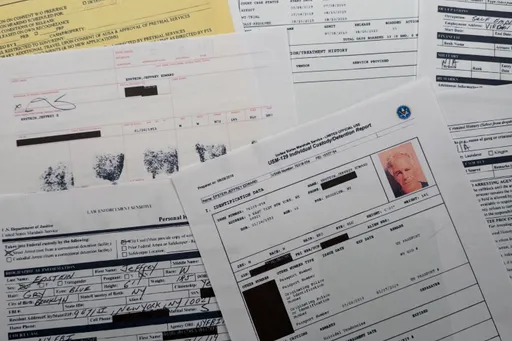Amidst the strain and anxiety of the pandemic, it feels reassuring to celebrate the unprecedented feats of publicly-funded scientific accomplishments that continue to dot the headlines. These include the landing of the Perseverance rover on Mars to each newly announced vaccine breakthrough, the most recent of which adds Cuba to the list of homegrown vaccine developers.
For the fortunate few, the incredible progress on vaccine development and the race to inoculate will shape policy making for the year ahead. The billions without powerful governments to play the zero-sum game over supplies, however, face years of uncertainty.
Whether we look at the UK speedboat or the EU tanker, developed countries seem relatively certain that a majority of their adult populations will receive a shot by the end of 2021. Middle income countries, like Mexico and Turkey, can expect slower distribution but a potential to see similar results in 2022.
The nations remaining, where a majority of humanity resides, can hope to see their populations protected by the latter half of 2023 at the earliest. This is an optimistic scenario that does not consider the consequences of trade disputes, mutant strains and unexpected booster requirements.
In the face of this gross inequity, a simple proposal is quietly gaining support and raising questions about how global systems justify themselves. The concept is relatively straightforward: the designs and methods underpinning Covid-19 therapies be made publicly available and not subject to intellectual property (IP) protection.
This campaign coalesced into a proposal, initially led by India and South Africa, to the WTO’s Council for the Agreement of Trade-Related Aspects of Intellectual Property (TRIPS) late last year. It calls for a time-limited waiver of IP laws on products relating to the “prevention, containment or treatment of Covid-19”.
Essentially, now that we have the means to put this pandemic behind us, we should void the patents preventing every capable manufacturer from rolling them out.
The TRIPS waiver would facilitate the conditional technology transfer needed to enable a range of sophisticated producers to rapidly increase production of proven and effective means of fighting this pandemic.
But it’s detractors fear any such allowance would open the floodgates that undermine the incentive to innovate everywhere.
The greatest wealth is health
The TRIPS waiver, now supported by over a hundred nations including China, is not as revolutionary a proposal as it seems. It is a narrow exemption stemming from the current pandemic emergency and not a ‘Third World’ plot to undermine capitalism or private incentive structures.
Regardless, however, it is destined to fail in the face of powerful opposition from the US, together with European nations and the UK among others. There is a cruelty to the fact that the countries in opposition feature prominently among the ten which have distributed 75 percent of all vaccinations globally – in stark contrast to 130 nations whose people have yet to receive a single dose.
Over the last year, the radical public responses the virus forced upon governments has made clear that unprecedented decision-making is possible, regardless of socio-political orthodoxy.
The conversation at TRIPS itself would have seemed unthinkable only a few years ago. It was a forum where nations like India, often described as the “World’s Pharmacy” for it’s vaccine and drug manufacturing capacity, saw it’s generic manufacture of life-saving therapeutics come in for criticism as tantamount to expropriation.
It is these expensive licensing mechanisms, which typically stem from highly inequitable negotiations, that developed nations and pharmaceutical companies today see as a means to address Covid vaccine production issues.
The inspiration of Jonas Salk, who refused to patent his polio vaccine in order to maximise its distribution, should be a reminder that the paucity of supply that affects even the richest states is not inevitable. A small handful of corporations, whether wholly private or state-backed, cannot manufacture and distribute enough Covid-19 vaccines for the whole world.
So long as solutions are locked behind IP protections, supply will not meet urgent needs at affordable rates, and we will witness a global vaccine roll-out which essentially has within it the expectation of viral transmission continuing through the bottom billion.
The emergence of the new strains has failed to persuade the wealthy of the dangerous consequences of allowing the virus to circulate unabated anywhere. It is a lesson captured clearest on the COVAX website itself: “nobody wins the race until everyone wins”.
Creating the future
The inflexibility and power dynamics that are in-built into global governance means this waiver will continue to languish in opaque bureaucracies. The consequences of its failure could add a dangerous volatility to how such questions arise in the future.
The next decade will be shaped by the repercussions of the last 12 months and the beneficiaries of existing systems of political and economic order must be careful of how they exercise their authority lest it be undermined.
The comparatively benign quarter century between 1990 and 2015 was diminished by resurgent nationalism that emerged from inequities within states. The lessons from that experience must be applied to international forums or our precarious version of globalisation could itself fracture. This TRIPS proposal takes to the global stage the same principles that underwrite social justice campaigns everywhere: if the rules are subject to change for the powerful, when will they be so for the powerless?
In a world where Russian and Chinese leaders can use their scientific breakthroughs to leverage soft power games across an international power vacuum, something unfamiliar is underway. The pandemic has altered seemingly unquestionable rules of the game and created the opportunity for the have-nots of power politics to interrogate an inherently unjust system.
The public jostling for who gets to play the role of the benign scientific leader is in stark contrast to the defensiveness being witnessed at the WTO. Prestige in a post-COVID-19 global order is certainly up for grabs and the manner in which rich nations chose to exercise influence may come to define relations for longer than we expect.
Indeed, the echoes of the rich world’s refusal on this TRIPS proposal may make the next waiver from global norms far less narrow.
The emergence of effective vaccine technology from both command and capitalist brain trusts prevented the worst case scenario envisioned in the much predicted scramble for vaccines. Now, as stock markets hover at near all-time highs, the subject of whom that recovery is to be for is starting to become strikingly clear.
There have always been winners and losers in our mixed economic system and the virus was never going to level the playing field. The TRIPS waiver proposal is just the latest initiative to draw geopolitical boundaries between the so-called First World and the rest.
The underprivileged are asking why the intransigence of a system that has incapacitated the international community’s ability to collectively respond to the challenge of Covid – and harmed most of all the elderly populations of the West – is not capable of finding some humanity for them.























